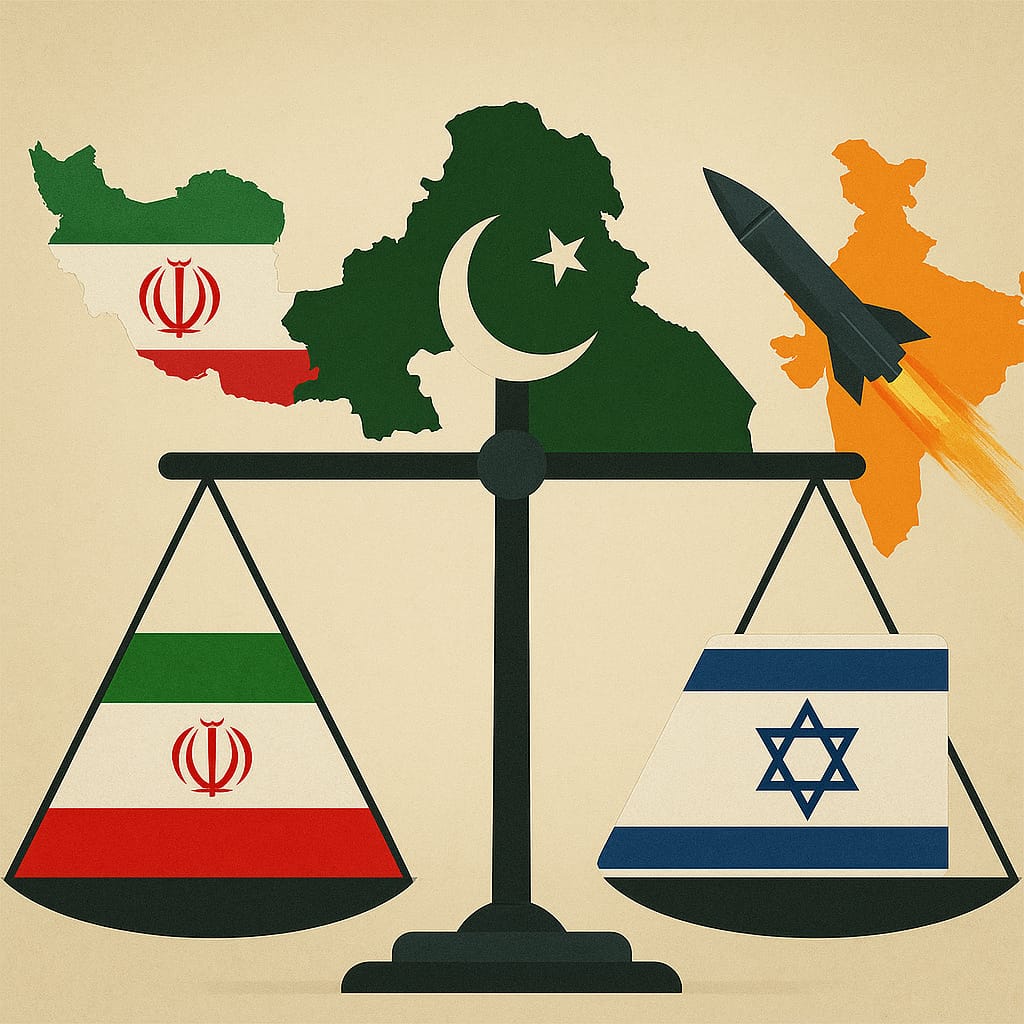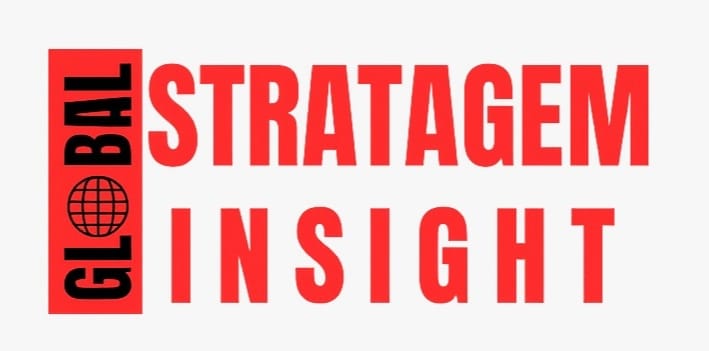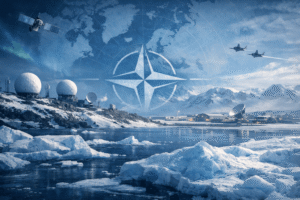Strategic Balancing in a Turbulent Triangle: Pakistan’s Diplomatic Strategy Amid Regional Escalation

A powerful visual depicting Pakistan’s diplomatic balancing act between Iran and Israel, set against the backdrop of heightened regional tensions with India.
In line with the recent tensions between Israel and Iran where both actors have launched missile and cyber-attacks on each other claiming hundreds of civilian casualties on both sides. The conflict emerged with the accusation on Iran for engaging in the development of nuclear weapons. On the morning of June 22, 2025, the same argument was used by the United States of America for attacking Israel.
Following the Reuters Report, the United States has carried out attacks on three nuclear sites in Iran. The Regional Complex Theory of Berry Buzan and Ole Weaver points out that regional Security cannot be understood in isolation but as a part of a larger “Regional Security Complex”. The core argument of theory revolves around “patterns of amity and enmity” emphasizing that the state’s security concerns are deeply intertwined and interdependent.
This means that the security concerns of the states are so closely interlinked that they cannot be addressed in isolation. Pakistan is located in the neighborhood of Iran, and has been a historical ally of the United States, an important geostrategic and economic partner of China against its bitter rival India is at the crossroads of this new strategic contestation in the region. Pakistan’s diplomatic goal must aim to balance strategic interests and economic vulnerabilities in the region which is on the edge.
In this diplomatic Chessboard where Pakistan aims to preserve its strategic deterrence with its traditional enemy India, it should adopt a policy that avoids creating any space for India in Iran. India has invested in Iranian Chabhar port and this collaboration might increase if Pakistan fails to balance the escalating dynamics.
In addition to this, Iran has been accused of being used by intelligence agencies of India against Pakistan. This historical geopolitical dynamic between India, Pakistan, and Iran where India and Iran had been closely cooperating in both strategic and economic arenas could be shifted. Pakistan can balance with Iran and can practice quite diplomacy through backchannels and could offer humanitarian aid. The government of Pakistan has already condemned this strike on Iran and has retreated that these attacks violate international laws and has endorsed the Iranian right to defend itself.
One other aspect for Pakistan in this dynamic is that Israel and Pakistan have always been enormous towards each other where Israel facilitated and supported India both militarily and diplomatically in the recent Pakistan-India conflict. The current development between Iran and Israel could be used by Pakistan to cause unannounced damage to Israel at the hands of Iran. This aim could be attained through intelligence sharing and by facilitating backdoor nexus. Simultaneously, another challenge is present for Pakistan in balancing the global power struggle in the region.
Pakistan has historically been a close ally of the United States of America. Pakistan’s economy is dependent on loans from the International Monetary Fund and World Bank both of these institutions are heavily influenced by the United States. In addition, both the countries cooperate in efforts against terrorism. Pakistan cannot afford troubled relations with the United States as it would result in a decrease in its global influence because of the United States’ strong presence in international institutions like FATF which can also result in multiple economic sanctions.
On the other hand, the United States has coupled itself with Israel in the war against Iran. In addition, it has conducted attacks on nuclear sites of Iran. Pakistan needs to bring both of the actors, the US and Iran to the table and should play the role of mediator to ease the problems. Pakistan should preserve its sovereignty and integrity without engaging in any direct confrontation.
The People’s Republic of China has a large amount of economic interest in Iran as China is one of the largest exporters of Iranian oil. China has urged for peace in the Middle East as Xi Jinping said, “if the Middle East is unstable, the world will not be at peace”. Furthermore, China is the largest economic investor in Pakistan and a major defense supplier. Pakistan needs to adopt a “hedging strategy” to balance this turbulence in the age of Thucicydes trap-like situation between global powers. Furthermore, Iran has threatened to attack American bases most of which are present in Middle Eastern countries like Saudi Arabia, UAE, and Qatar. This could add fuel to the fire and may further escalate the situation.
The current escalation in the region is cause of great concern for Pakistan as it is religiously and diplomatically sensitive. Pakistan should act as a mediator and as an architect of peace and should leverage its geostrategic position and its unique nuclear dominance in the Muslim world. Pakistan should urge states involved in the conflict to de-escalate and should create regional forums to help ease the peace talks. Pakistan should avoid being a launch pad for any actor. Pakistan should learn from history and should strictly adhere to the policy of neutrality. The practice of hedging can bring a win-win situation for Pakistan as it will enable it to not only secure diplomatic objectives but will preserve its economic and cultural ties.



